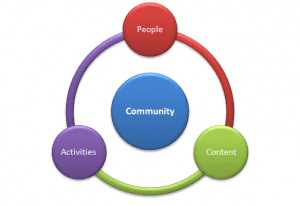Business Value of Social Computing (I)
March 29, 2014
Hello there! I'd like to start a new serie of posts where I want to hightlight and demystify the benefits of introducing and extending enterprise social networks (ESN) in companies. There is a lot of material online about the social networks, with diverging and even contradictory findings. I would like to present a summary of the most important points that link social networks and business. I will not talk about a specific technology such as Beezy or Yammer or SharePoint, but about the underlying business value.
In this first post I will focus on defining the subject at hand.
What is Social?
The first thing to define is the "social" we all talk about. If we look up the origin of the word, it comes from Latin "sociālis" and it means "of or belonging to a companion or companionship or association". It further refers us to Latin word "socius" which means "a companion, fellow, partner, associate, ally". As you can see, the word "social" always means something that is shared among our companions, it is always something that belongs to more than one person.
The term "social networking" is also defined in the dictionary as "the interaction between a group of people who share a common interest". This is the definition that is more important to us. It highlights that we engage in social networking to interact with other people that share a common goal or interest.
Up to now, social and social networking doesn't mean that we use technology at all. We exercise social networking when we chat with our friends over a beer. But, when we introduce social networking in the corporate world, we find that the clear-cut definition we had until now transforms into several enterprise social networking definitions.
In order to establish a baseline with the keywords that will help us later on, let's define "enterprise social networking" as a combination of three factors orbiting around the concept of communities.
Communities, People, Activities and Content

-
Community
-
A community is the group of people that share a specific interest. The whole idea of social network is intimately related to the concept of emerging communities. Communities can arise around a certain interest common to the members (communities of interest or practice) or around a common feature that the members share (departamental, gender and geographical-based communities). However, the concept of community is that it always revolve around something common to more than one person.
-
People
-
The members of a community and the participants in the social network. The people contribute their individual diversity to enrich a community with their activities and content.
-
Activities
-
People post statuses, ask questions, look for answers and rank the information and people in the community. All these discrete actions are called activities.
-
Content
-
The information contributed by the people with their activities inside the community. A community without content is possible, but it is not a healthy community.
Now we should have a clear meaning of the factors that interact in a enterprise social network environment: the communities, the people, the activities and the content. With this in mind, we can review what social is used for in the corporate environment.